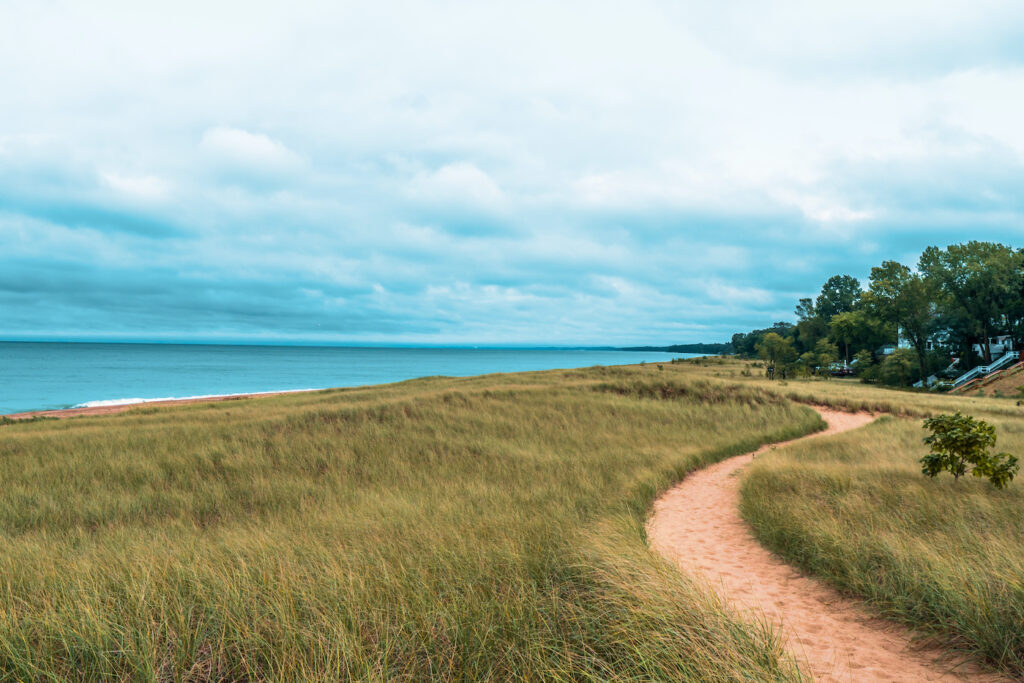Editor’s Note: This essay is the third in a symposium that, in recognition of Fidelity Month, reflects on the importance of fidelity to God, our families, and our country. You can watch a recording of Public Discourse’s recent webinar on Fidelity Month here.
As Aristotle held, human beings are by nature political or social and are ordered to community of necessarily limited size—the appropriate size being that of a polis. We come together to achieve certain ends essential to our flourishing, of which the act of being together is itself an important part. When we sense—and it most often indeed will be just a vague sense—that the communities to which we belong no longer support us in our flourishing, then we will naturally, perhaps without even knowing what we intend, redirect our attentions elsewhere.
This is exactly what many of us have begun to do. In his 2000 book Bowling Alone: The Collapse and Revival of American Community, Robert D. Putnam documents the ever-increasing solitude, loneliness, withdrawal, and alienation of Americans from their long traditions of communal life. Rod Dreher recommends reconnecting with one another by turning to small communities in The Benedict Option. Still, our society has made a general choice along the lines Putnam describes in favor of withdrawal, on the part of modern Americans (and modern Westerners more generally), from community. The social map, even as these new, intentional communities that Dreher describes come into being, persists in its general trend toward fragmentation and alienation.
What is missing from modern life is fidelity—and not just fidelity in general, but fidelity to those things that are given us and that we can never, at least fully, choose for ourselves. By this I mean our places of birth—our block, our neighborhood, our village, our state—and the families and communities into which we were born.
Start your day with Public Discourse
Sign up and get our daily essays sent straight to your inbox.Filiation and Affiliation
The late Edward Said was known for his distinction between filiation and affiliation. Filiative relations are those that come to us naturally, those that are givens of our birth and into which we are born. Affiliative relations are those we purposefully forge. In Putnam’s America, most people withdraw increasingly into solitude—into mere loneliness. But, as Said suggested, are not many of our chosen affiliations acts of withdrawal in themselves? Are they not retreats from filiative associations into affiliative ones—with an emphasis on the word “retreats”?
They certainly are. But is there anything wrong with that?
Many years ago, I heard a lecture at Notre Dame by a former student of Alasdair MacIntyre’s. He alluded to MacIntyre’s mordant suggestion that being patriotic in regard to the United States of America was a bit like pledging one’s love to the phone company. We need to belong to smaller scale communities, said this former student; he did not want to belong to a great country, he did not want to belong to the masses of a cosmopolis, but to a polis. And then, he gestured out the window at the gorgeous campus all about us, and concluded, “I want to belong to a polis like Notre Dame.”
Filiative relations are those that come to us naturally, those that are givens of our birth and into which we are born. Affiliative relations are those we purposefully forge.
While I shared this man’s love of that university, I could not help but notice that—despite its abundant acreage, its own post office and ZIP code, its power plant, basilica, and even the great farmlands the students once tilled to raise food for their dining halls—despite all this, I say, a university can never constitute a polis. This is so not merely because its population consists largely of unmarried young people between the ages of eighteen and twenty-one. Rather, a university, like a monastery and a bowling team, is affiliative down to its bones. This student had effectively endorsed Dreher’s proposal on MacIntyre’s terms, but he had also shown the necessary weakness of that proposal.
Affiliation is often a tragic necessity, a chosen alternative but a reluctant one, after filiation fails. Any good human life will contain chosen attachments and, most likely, many of them. What I want to defend is not filiation against affiliation but rather the relative superiority of filiation to affiliation and, furthermore, the intrinsic dependence of all affiliations on those natural attachments that Said called filiations. Those communal attachments that are given to us are greater than those we choose, and those we choose, great though they may be, depend for their quality on the priority of our given attachments. I distinguish not between good and bad, but between root and vine.
Unchosen Bonds
For this reason, fidelity to place, to the community of one’s birth, is not merely one virtue among others, but a foundational and formative source of our character. We first learn to be faithful husbands and wives from the unchosen example we witness of our own parents. We first learn to be faithful citizens as we explore the small postage stamp of terrain that we did not choose to go to, but simply awakened to with our first dawn of consciousness. Our care for our towns and cities is rooted in the upkeep of our homes.
Finite creatures that we are, these first unchosen relationships form all future ones. Their failings often mar us; their successes help us to flourish. Although it can only ever be a rule of thumb, one might think twice before allowing a young man who has been a lousy son to become one’s husband. Is it more or less likely that the young woman enrolled at Our Lady’s University will be a good citizen of that temporary “polis” if she arrives there hating the place she comes from?
Fidelity to place, to the community of one’s birth, is not merely one virtue among others, but a foundational and formative source of our character.
Fidelity to our first, natural communities is more than just a temporary schoolhouse for our future affiliations. A kind of fidelity is possible in those communities that is generally not available otherwise. When one knows a place and accepts it as given rather than chosen, its faults and weaknesses become not an occasion for leaving but for recommitment, forbearance, and reform. We are less likely to feel we have wasted our efforts in service of our natural filiations—bonds that were given with our birth and so have the strength of nature behind them.
The small communities recommended in The Benedict Option are real and beautiful communities, but they are marred as well. They have intrinsic in them the memory of prior communal failures, which can tempt their members to believe that what has been freely chosen can be just as freely and easily unchosen. Actual Benedictine congregations, of course, require of their monks a vow of stability. In a monastery, statues of the Virgin and Child always depict Mary seated—a sign by which she tells us “I am not going anywhere.” Vows can overcome some of the weaknesses built into choice. But, even here, those religious who first loved their natural community will have proportionately stronger vows.
Return to Roots
Over the years, as I have admired Robert George from afar, I have first appreciated his uncompromising commitment to God and to the everlasting country so frequently on display in his fidelity to his conscience. I have always especially treasured this anecdote David Brooks relates about George, in his essay “The Organization Kid”:
George described a moment when he and a colleague were urging their students not to commit plagiarism. The honor code goes against it, George told them; the Internet makes it easier to plagiarize, but also much easier for faculty members to catch plagiarists. Besides, he concluded, God will see you doing evil.
Little less have I appreciated his fidelity to his West Virginia roots, whether suggested by his occasional tributes to the life of his father or his accomplished banjo playing. One can sense that George, the Princeton professor, is a better Princeton Tiger for having first been a good West Virginia Mountaineer.
Fidelity to the places and communities of our birth is an irreplaceable good, one that may beget other kinds of goods, but for which there can be no adequate substitute.
I believe it thus, at any rate. When two years ago I had the opportunity to move back to my region of birth, Michigan, I had been waiting a dozen years and jumped without reservation. I knew, when growing up, the trials and failings of the place, but also was able to see its goodness through and despite those failings. I could be a faithful citizen not only because I loved the place with good reason, but because I could love it even when the reasons were not so good.
Perhaps in an age such as ours, the withdrawal from the failing, dominant institutions of society, and the attempt to build up smaller, intentional ones, may seem the best available option. I would suggest, however, that there is something even richer in the “unoptioned” and the “optionless.” Fidelity to the places and communities of our birth is an irreplaceable good, one that may beget other kinds of goods, but for which there can be no adequate substitute. Learn to be faithful to what was first given to you, even when the roots are sick and the prospects seem dreary.













